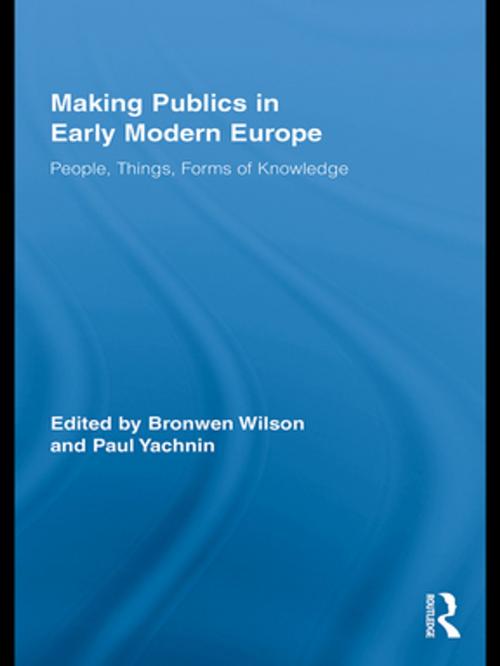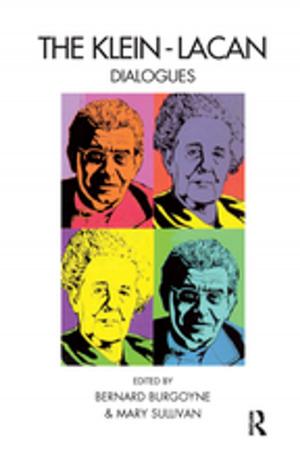Making Publics in Early Modern Europe
People, Things, Forms of Knowledge
Nonfiction, History, Renaissance, Fiction & Literature, Literary Theory & Criticism, British| Author: | ISBN: | 9781135168926 | |
| Publisher: | Taylor and Francis | Publication: | July 21, 2011 |
| Imprint: | Routledge | Language: | English |
| Author: | |
| ISBN: | 9781135168926 |
| Publisher: | Taylor and Francis |
| Publication: | July 21, 2011 |
| Imprint: | Routledge |
| Language: | English |
The book looks at how people, things, and new forms of knowledge created "publics" in early modern Europe, and how publics changed the shape of early modern society. The focus is on what the authors call "making publics" — the active creation of new forms of association that allowed people to connect with others in ways not rooted in family, rank or vocation, but rather founded in voluntary groupings built on the shared interests, tastes, commitments, and desires of individuals. By creating new forms of association, cultural producers and consumers challenged dominant ideas about just who could be a public person, greatly expanded the resources of public life for ordinary people in their own time, and developed ideas and practices that have helped create the political culture of modernity. Coming from a number of disciplines including literary and cultural studies, art history, history of religion, history of science, and musicology, the contributors develop analyses of a range of cases of early modern public-making that together demonstrate the rich inventiveness and formative social power of artistic and intellectual publication in this period.
The book looks at how people, things, and new forms of knowledge created "publics" in early modern Europe, and how publics changed the shape of early modern society. The focus is on what the authors call "making publics" — the active creation of new forms of association that allowed people to connect with others in ways not rooted in family, rank or vocation, but rather founded in voluntary groupings built on the shared interests, tastes, commitments, and desires of individuals. By creating new forms of association, cultural producers and consumers challenged dominant ideas about just who could be a public person, greatly expanded the resources of public life for ordinary people in their own time, and developed ideas and practices that have helped create the political culture of modernity. Coming from a number of disciplines including literary and cultural studies, art history, history of religion, history of science, and musicology, the contributors develop analyses of a range of cases of early modern public-making that together demonstrate the rich inventiveness and formative social power of artistic and intellectual publication in this period.















